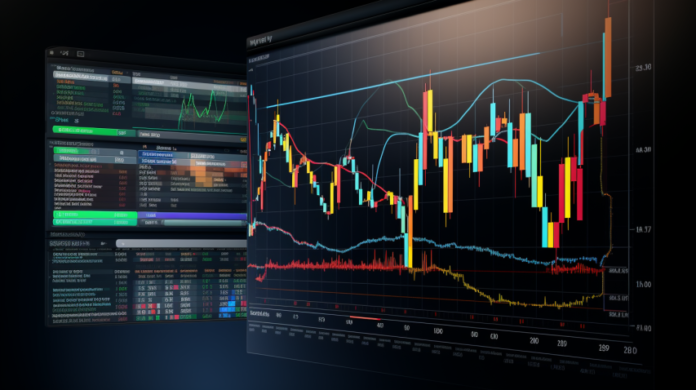Introduction
Forex spread is a key indicator that plays an essential role in forex trading. It determines the cost of opening a position and can significantly affect the potential profitability of your strategy. In this article, we will go into detail about what the spread is and how it will help you in trading.
What is Forex Spread?
Forex spread is one of the main concepts of the currency market and represents the difference between the buy and sell prices of a currency pair. In other words, the spread is a commission that a broker sets for his services on trading operations. What is important to know about the spread? Let’s talk about it further:
- Bid and Ask price. Every currency pair has two prices: Bid (selling price) and Ask (buying price). The Bid price is always slightly lower than the Ask price. This is because brokers buy currency at a lower price (Bid) than the price at which they sell it (Ask).
- The difference between Bid and Ask. The spread is calculated as the difference between the Ask price and the Bid price. For example, if the Ask price for the EUR/USD currency pair is 1.1205 and the Bid price is 1.1200, the spread will be 5 pips.
- Impact on trading. The spread is a key factor in determining the value of a trade for a trader. The spread affects how quickly your trade will become profitable. The higher the spread, the longer the trader will need to stay in the trade to make it profitable.
- Dependence on volatility and liquidity. The spread can vary depending on the volatility and liquidity of the market. During periods of high volatility or low liquidity, spreads may increase.
- Dependence on forex broker. The spread size may also depend on the policy of a particular broker. Some brokers set fixed spreads, while others offer variable spreads that may fluctuate depending on market conditions. To find out more about this, go to the forex broker’s website, for example, judging by trader reviews, a reliable broker is Pocket Option – https://revieweek.com/review/pocketoption/.
Understanding spreads is important for any trader, as it will help them make better informed trading decisions and improve the effectiveness of their trading strategy.
How is the Spread Formed?
Forex spread formation depends on several key factors that affect the difference between Bid (selling) and Ask (buying) prices.
Spreads are formed based on the supply and demand mechanism. If demand for a particular currency is high and supply is low, spreads can narrow. On the contrary, when supply is high and demand is low, spreads may widen. The liquidity of a currency pair also plays an important role in spread formation. Currency pairs with high liquidity, such as EUR/USD, tend to have narrower spreads than less liquid pairs.

During periods of high volatility, when prices fluctuate rapidly, spreads may widen due to increased risk to the broker. Forex brokers can set their own spreads depending on their business model and risk management policies. Some brokers offer fixed spreads while others offer variable spreads that change depending on the market.
The spread can also vary depending on the time of day and trading session. During periods of high market activity, such as during the intersection of the European and American sessions, spreads can be tighter.
Forex Spread Mistakes
Here are some of the common mistakes:
- One of the biggest mistakes traders make is ignoring spreads. Even if a spread seems small, it can accumulate over time and reduce your overall profitability.
- Time of day and market volatility can affect the spread. If you trade during periods of high volatility or when the market is less active, you may experience higher spreads.
- By not factoring the spread into the risk calculation, a trader can end up with incorrect data about potential profits and losses. This can lead to improper risk management and ultimately to losses.

- Some traders choose a broker solely based on spreads, but this is not always the best strategy. Brokers offering the lowest spreads may charge additional commissions or have less attractive trading conditions.
- Low-profit strategies such as scalping may become unproductive due to high spreads. If your profit on a trade is too small, the spread can eat up most of the profit.
To avoid these mistakes, you should always consider spreads in your trading strategies and regularly check and compare spreads at your forex broker. We recommend looking at the Alpari broker – https://revieweek.com/review/alpari/




